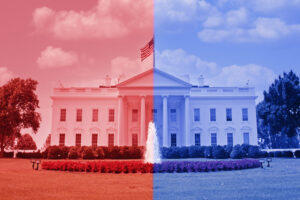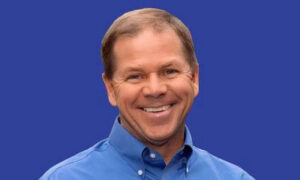6:15
Commentary
Being civil seems like the bare minimum of what we owe each other, yet studies show that incivility is on the rise in our country.
A 2019 Pew Research survey found that 68% of those surveyed wanted elected officials to exhibit a tone of civility and respect in politics. Yet we watch politicians talk past each other seemingly to compete against and vanquish the other rather than solving the critical problems facing us.
I grew up in a rural area of Missouri, where my father was a public servant. He was appointed by the governor to the county clerk position, ran for many elected positions and served multiple terms. In every position, I watched him work both sides of the aisle to pass significant policy change.
These uncivil times call us to work harder than ever to be civil. We can relearn how to speak and commit to understanding rather than judging. We must dispel old, ineffective habits in conversations, such as interrupting, jumping to conclusions or dismissing others because you think we know what they are going to say.
In my experience, I have learned how to be more effective through a very powerful, yet sometimes forgotten, conversational tool: Listening.
Listening isn’t passive, it is active. By intently listening, you open, not close, your mindset.
Making an effort to intently listen to others opens the door to learning, gaining insights and creativity. All of those lead to problem-solving. When seeking policy change over the years, there have been many times where I have felt dismissed or not listened to, and I have become more aware of when I need to activate my listening skills to truly understand a person’s perspective.
Women across Kansas and Missouri have shared this same sentiment with us during town hall meetings in all parts of these states. Listening skills are critical when there are strong disagreements, so there is a path cleared toward understanding.
- Be present, ask open-ended questions and show genuine curiosity. While others are talking, don’t focus on what you’re going to say next because you can miss a key insight.
- Resist the urge to interrupt. It makes it more likely you will gain additional insight and a greater understanding of others’ perspectives if you stay focused on what is being said.
- Commit to removing emotion from the conversation. Instead, frame your perspective with research and personal stories that create context for your insights.
- Observe the other side’s mood and willingness to compromise as well as what will make them walk away.
- Be curious rather than appraising. Use this as an opportunity to ask questions and truly listen to one another in an openhearted way.
Healthy debate allows us to hear all perspectives and understand different points of view. We can agree to disagree, but when we walk away from the debate we do so with respect. The goal is not to win but to understand and work together to make policy changes for the public good.
As we head toward the November elections, the best path forward is to collectively unite to solve problems that improve and strengthen our communities. Let’s all do our part to listen.
This commentary was originally published by Kansas Reflector, a States Newsroom affiliate.
Our stories may be republished online or in print under Creative Commons license CC BY-NC-ND 4.0. We ask that you edit only for style or to shorten, provide proper attribution and link to our website. AP and Getty images may not be republished. Please see our republishing guidelines for use of any other photos and graphics.






Wendy Doyle